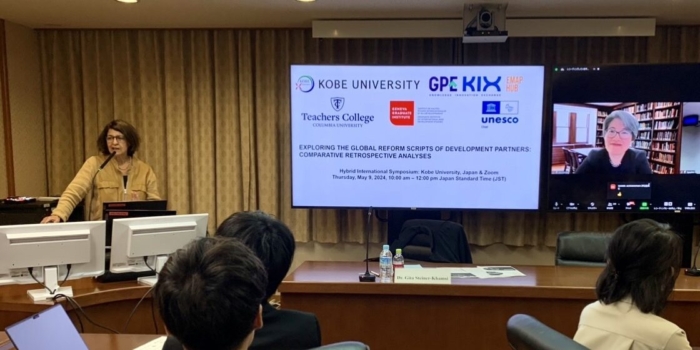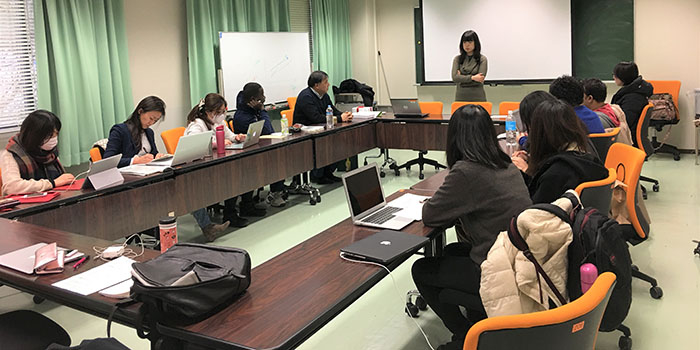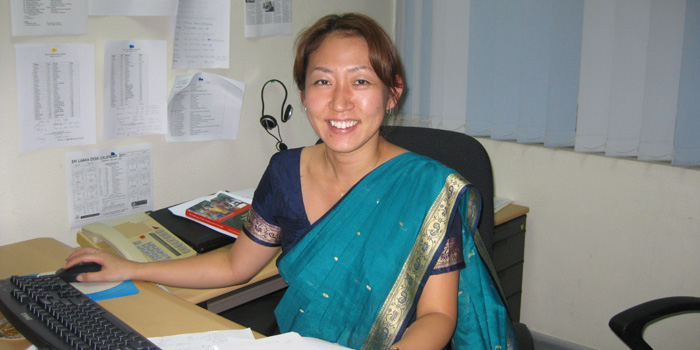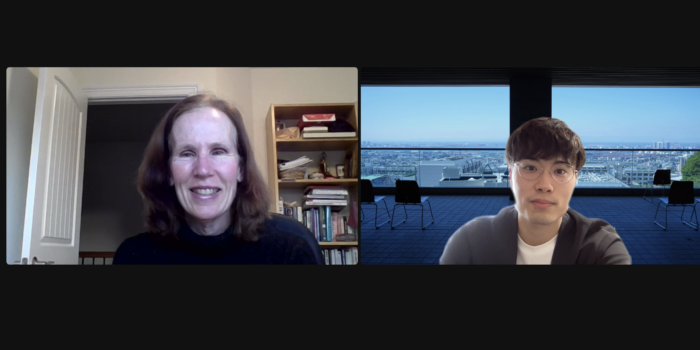On May 9, 2024, Kobe University’s Graduate School of International Cooperation Studies (GSICS) hosted an International Hybrid Symposium, “Exploring the Global Reform Scripts of Development Partners: Comparative Retrospective Analyses.” The symposium is jointly organized by Kobe University and the KIX EMAP Hub, with support from Teachers College, Columbia University, and the UNESCO Chair at the Geneva Graduate Institute in collaboration with numerous universities, ministries of education, think tanks, and development partners. This initiative is funded by the Global Partnership for Education and administered globally by the International Development Research Centre in Ottawa. Thanks to the simultaneous translation into Arabic, Russian, and Khmer, about 330 participants gathered from all over the world.
 The symposium started with a welcome speech by Professor Keiichi Ogawa on behalf of the host organization. He shared his experiences in educational transfer and autonomous school management practices over the years, reflecting on Kobe University’s JICA training and education projects in Yemen, and explained that these efforts have led to this symposium. Additionally, on behalf of the KIX EMAP Hub, Dr. Alushi Terway expressed her gratitude to the participants and many sponsors.
The symposium started with a welcome speech by Professor Keiichi Ogawa on behalf of the host organization. He shared his experiences in educational transfer and autonomous school management practices over the years, reflecting on Kobe University’s JICA training and education projects in Yemen, and explained that these efforts have led to this symposium. Additionally, on behalf of the KIX EMAP Hub, Dr. Alushi Terway expressed her gratitude to the participants and many sponsors.
In the keynote presentation, Dr. Rie Kijima, Associate Professor at the University of Toronto, introduced the World Education Reform Database (WERD), a large-scale joint initiative by the University of Toronto and Stanford University. The research team has collected information on over 10,000 education policies and reforms implemented in more than 190 countries, mainly since the 1960s. They have already conducted multifaceted studies using WERD, and Dr. Kijima shared some of their findings and prospects with the audience.
Then, Professor Gita Steiner-Khamsi of Teachers College, Columbia University, gave an overview of educational reform from a historical perspective and provided insights into system thinking to unravel the trend of reforms. Specifically, she drew particular attention to the School Autonomy with Accountability (SAWA) reforms that spread worldwide from the 1980s and identified its position within the global trend. Furthermore, she offered a new direction for empirical investigation of the trend by utilizing WERD and suggested further possibilities for educational policy research.
 Afterward, we invited distinguished researchers and practitioners for a panel discussion. Professor Shinobu Yume Yamaguchi, Director of the Institute for the Advanced Study of Sustainability at the United Nations University, emphasized the role of local government and local reforms in dealing with the current learning crisis and expressed her expectations for WERD’s initiatives from the educational policy point of view. Meanwhile, Professor Kazuo Kuroda from Waseda University discussed global trends in education through the lens of global governance and stressed his keen interest in quantitatively examining these trends with data.
Afterward, we invited distinguished researchers and practitioners for a panel discussion. Professor Shinobu Yume Yamaguchi, Director of the Institute for the Advanced Study of Sustainability at the United Nations University, emphasized the role of local government and local reforms in dealing with the current learning crisis and expressed her expectations for WERD’s initiatives from the educational policy point of view. Meanwhile, Professor Kazuo Kuroda from Waseda University discussed global trends in education through the lens of global governance and stressed his keen interest in quantitatively examining these trends with data.
Dr. Sam Sideth Dy, the Deputy Director-General for Education at the Cambodian Ministry of Education, Youth and Sports, discussed the history and trends of education reform starting with the Jomtien Conference, in the context of the politics and economics of both countries. On behalf of international organizations, Dr. Harry Patrinos, Senior Adviser at the World Bank, once again reminded the importance of education and turned his attention to governance and accountability to achieve learning outcomes. His remarks emphasized the role of projects and evaluations combined with system thinking and the collection and validation of data at both the global and national levels.
The symposium fostered a sense of unity and shared purpose, with the audience demonstrating a remarkable level of engagement. Many thought-provoking questions from graduate students and researchers during the Q&A session enriched the discussion, making the symposium highly fruitful. Moreover, this symposium served as a catalyst for future collaboration among Japanese and foreign universities, government bodies, and international organizations, highlighting the power of collective action in educational policy research.
Relevant News: https://www.norrag.org/event-highlights-hybrid-symposium-exploring-the-global-reform-scripts-of-development-partners/
Spring semester 2024: Major alumni activities in Japan | Our Stories | International and Comparative Education Program | International & Transcultural Studies | Teachers College, Columbia University
Authored by Ayumu Yagi (Doctoral student)




Related












